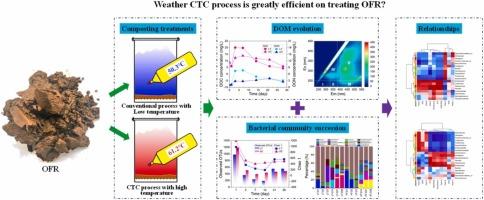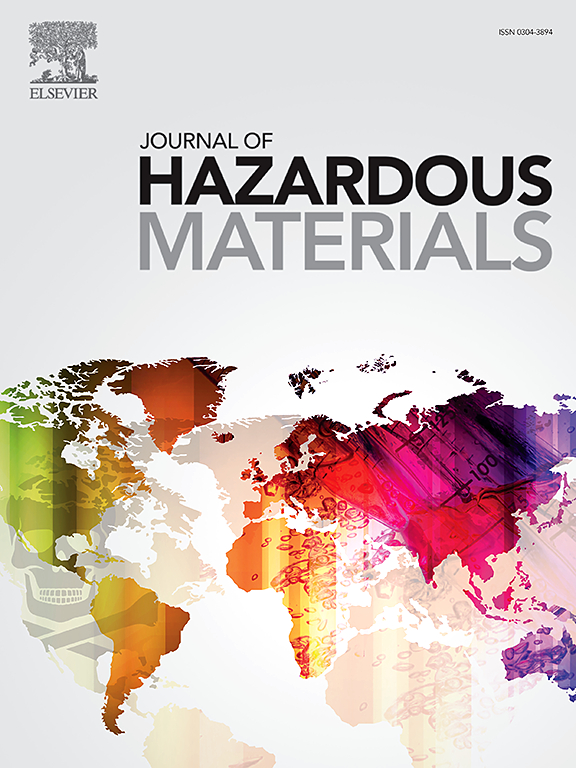Characteristics concerning the evolution of dissolved organic matter and dynamics of bacterial community during continuous thermophilic composting of oxytetracycline fermentation residue
IF 12.2
1区 环境科学与生态学
Q1 ENGINEERING, ENVIRONMENTAL
引用次数: 0
Abstract
Continuous thermophilic composting (CTC) is a potential technique to recycle oxytetracycline fermentation residue (OFR) with the extremely high level of antibiotics but is still not explored. To investigate the efficiency of CTC on treating OFR, the differences between this technique and conventional composting in the evolution of dissolved organic matter and dynamics of bacterial community were compared. The higher degradation efficiency of oxytetracycline (OTC) was obtained in CTC than conventional composting. The transformation of organic matter occurred faster and the maturity degree of compost product was higher in CTC than conventional composting. Compared with conventional composting, CTC increased the bacterial diversity and screened some functional microorganisms related to OTC degradation and organic matter transformation. The results indicate that CTC is a precise strategy for efficiently recycling OFR as soil amendment.

连续嗜热堆肥(CTC)是一种回收利用抗生素含量极高的土霉素发酵残渣(OFR)的潜在技术,但目前仍未得到开发。为了研究 CTC 处理土霉素发酵残渣的效率,比较了该技术与传统堆肥技术在溶解有机物演变和细菌群落动态方面的差异。与传统堆肥相比,CTC 对土霉素(OTC)的降解效率更高。与传统堆肥相比,CTC 中有机物的转化速度更快,堆肥产品的成熟度更高。与传统堆肥相比,CTC 增加了细菌多样性,并筛选出一些与 OTC 降解和有机物转化相关的功能微生物。结果表明,CTC 是一种有效回收 OFR 作为土壤改良剂的精确策略。
本文章由计算机程序翻译,如有差异,请以英文原文为准。
求助全文
约1分钟内获得全文
求助全文
来源期刊

Journal of Hazardous Materials
工程技术-工程:环境
CiteScore
25.40
自引率
5.90%
发文量
3059
审稿时长
58 days
期刊介绍:
The Journal of Hazardous Materials serves as a global platform for promoting cutting-edge research in the field of Environmental Science and Engineering. Our publication features a wide range of articles, including full-length research papers, review articles, and perspectives, with the aim of enhancing our understanding of the dangers and risks associated with various materials concerning public health and the environment. It is important to note that the term "environmental contaminants" refers specifically to substances that pose hazardous effects through contamination, while excluding those that do not have such impacts on the environment or human health. Moreover, we emphasize the distinction between wastes and hazardous materials in order to provide further clarity on the scope of the journal. We have a keen interest in exploring specific compounds and microbial agents that have adverse effects on the environment.
 求助内容:
求助内容: 应助结果提醒方式:
应助结果提醒方式:


